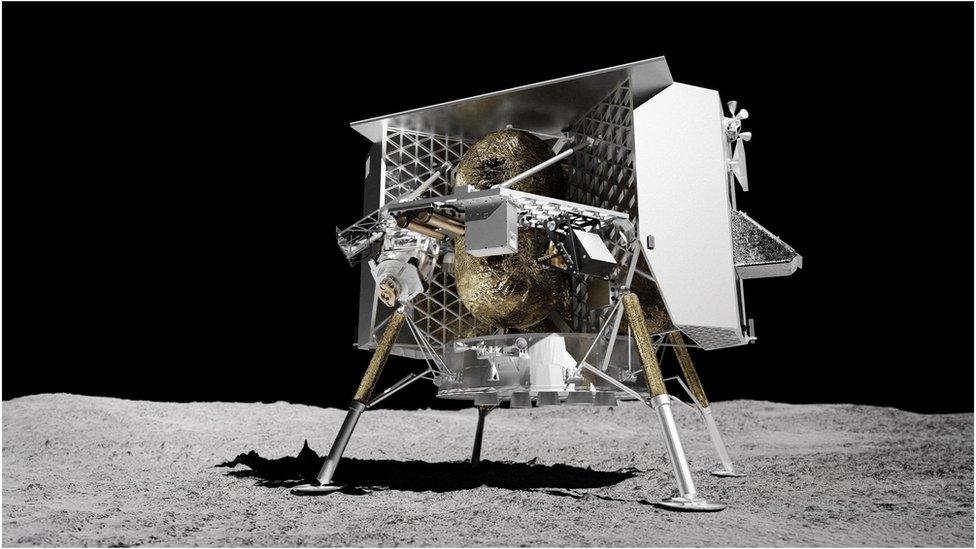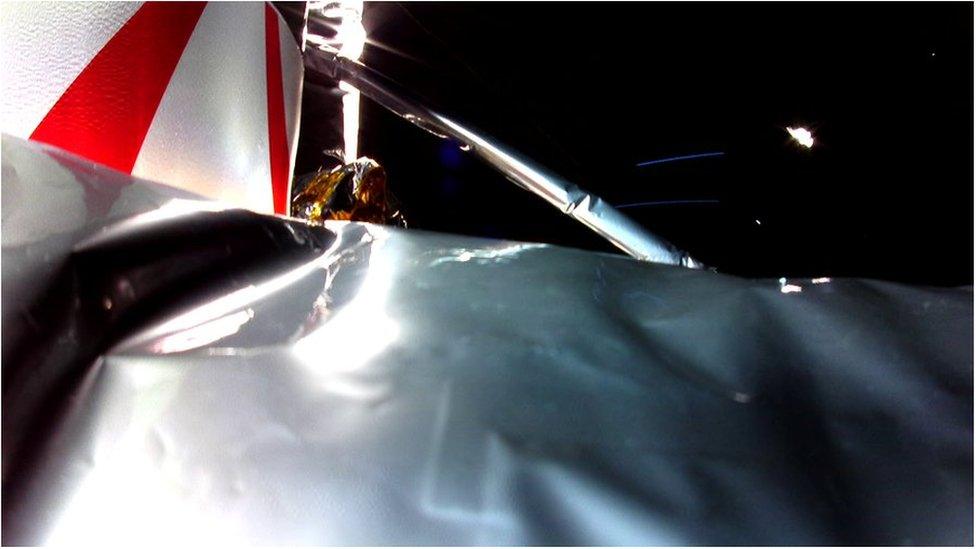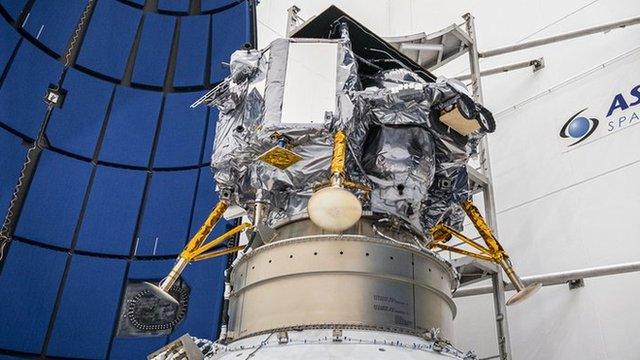US Moon mission has no chance of soft lunar landing
- Published

Astrobotic envisioned Peregrine landing on the Moon's northern hemisphere in late February
A US lunar lander has "no chance" of making a soft landing on the Moon due to a fuel leak, the company behind the mission says.
Pittsburgh-based Astrobotic said there was enough propellant to operate its Peregrine lander as a spacecraft.
The lander is expected to run out of fuel in about 40 hours, the firm said shortly after 17:00 GMT on Tuesday.
Peregrine ran into trouble almost as soon as it came off the top of its launch rocket on Monday.
"Given the propellant leak, there is, unfortunately, no chance of a soft landing on the Moon," Astrobotic said in a statement posted on X, formerly Twitter.
"The team has updated its estimates, and we currently expect to run out of propellant in about 40 hours from now - an improvement on last night's estimate.
"The team continues to work to find ways to extend Peregrine's operational life."
The 1.2-tonne lander was launched from Cape Canaveral, Florida, at 02:18 ET (07:18 GMT) on Monday, with the intention of landing in late February.
But in the first few hours of its journey, engineers noticed the would-be Moon lander was struggling to keep its solar panels looking in the direction of the Sun to charge its battery.
The cause was quickly attributed to a major leak in the propulsion system that was pushing Peregrine out of alignment.
To maintain the correct orientation in flight, Peregrine's thrusters are now having to work overtime, consuming even more of the diminishing fuel supply.
Astrobotic calculates the craft has under two days' worth of propellant left before reserves are exhausted and the spacecraft starts tumbling.
When that moment arrives, Peregrine, with its solar panels no longer collecting sunlight, will rapidly lose power.
Even before Tuesday's announcement from Astrobotic, it had become clear that a touch-down on the lunar surface - the first for the US in half a century - was all but impossible.

An image from Peregrine of warped insulation layers seemed to confirm the propulsion problem
The US space agency, Nasa, had purchased capacity on the lander for five instruments to study the lunar surface environment ahead of sending astronauts there later this decade.
Astrobotic is the first of three US companies to send a lander to the Moon this year under a new private-public partnership with Nasa.
Alongside two other commercial ventures - Intuitive Machines and Firefly - they had planned six missions to the lunar surface in 2024.
Nasa believes its new lunar partnership with the private sector will introduce more innovation and reduce costs over time. And the agency says it is prepared for some of these missions not to work.
The Peregrine craft was launched aboard the first flight of Vulcan, a rocket that had been under development for a decade by United Launch Alliance (ULA), a joint venture of Boeing and Lockheed Martin.
Related topics
- Published9 January 2024
